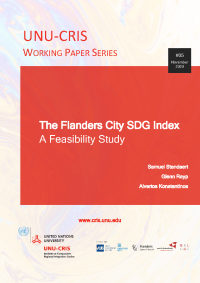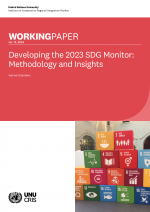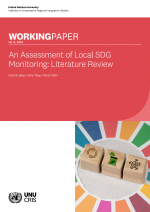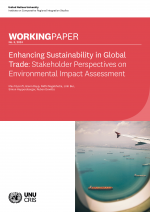The Flanders City SDG Index: A Feasibility Study

The purpose of this report is to propose a comprehensive and straightforward, yet sufficiently sophisticated methodology for monitoring the progress of the implementation of the Sustainable Development Goals by the municipalities of Flanders, Belgium. The present report is a preliminary effort to encourage policymakers to take a regional focus and to implement bottom-up policies and initiatives supporting the Sustainable Development Goals.
A distinctive element of this report is that it uses a pre-existing framework, established by international organisations, but at a much more local scale. The methodology that we follow is typically used for monitoring countries or regions, but is in this case used to track the progress of over 300 cities in the province of Flanders. Our results show that performance differs across Flanders, with the east of the region achieving better SDG scores than the west. However, this pattern is relatively weak, and the differences between SDGs do not lend themselves to easy generalisations. While some provinces score better on some goals, for most of the other SDGs a real understanding of what is driving the results will require an in-depth, city-specific analysis. This is illustrated using Bruges as a case-study.
The Flanders cities SDG indexes are meant to guide policymakers to those areas where improvement is most needed while keeping a broader overview of the overall SDG performance. Furthermore, for each SDG and indicator, they point to those Flemish municipalities that can offer up best-practices.




